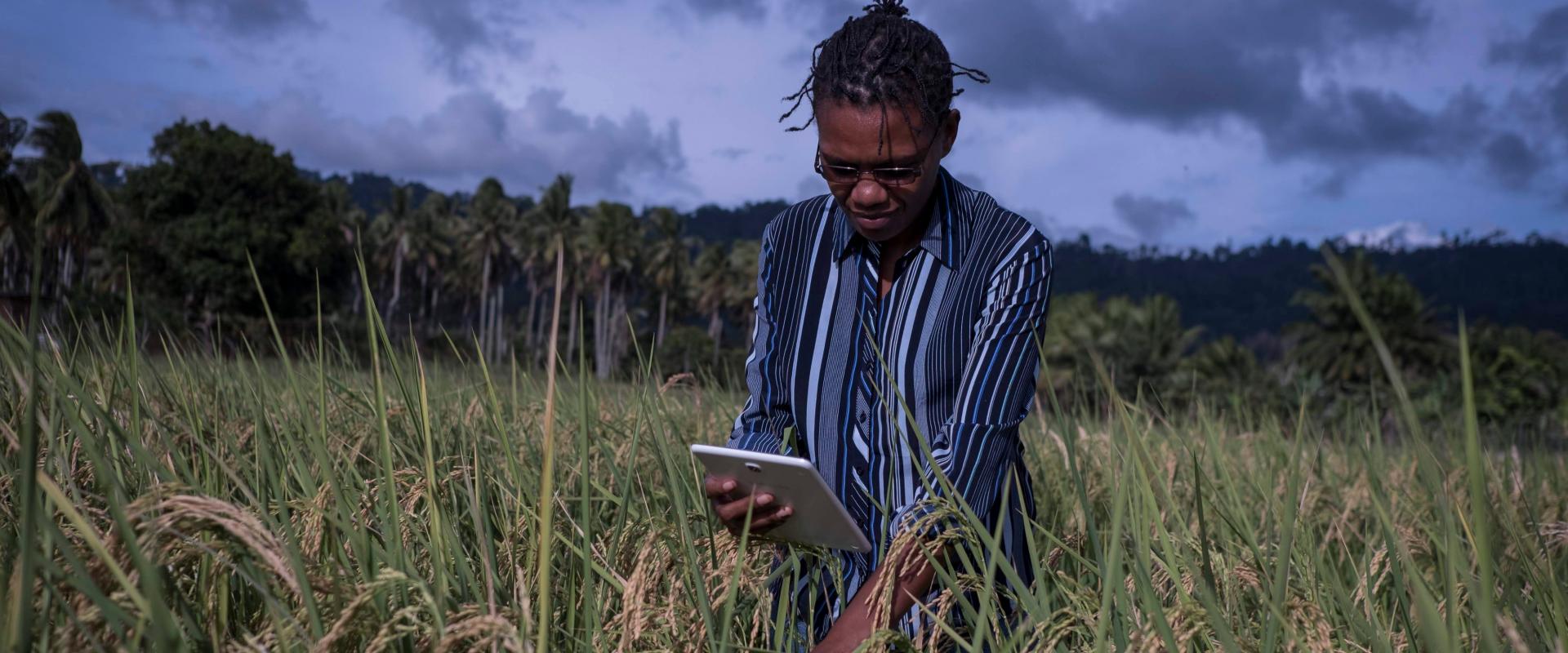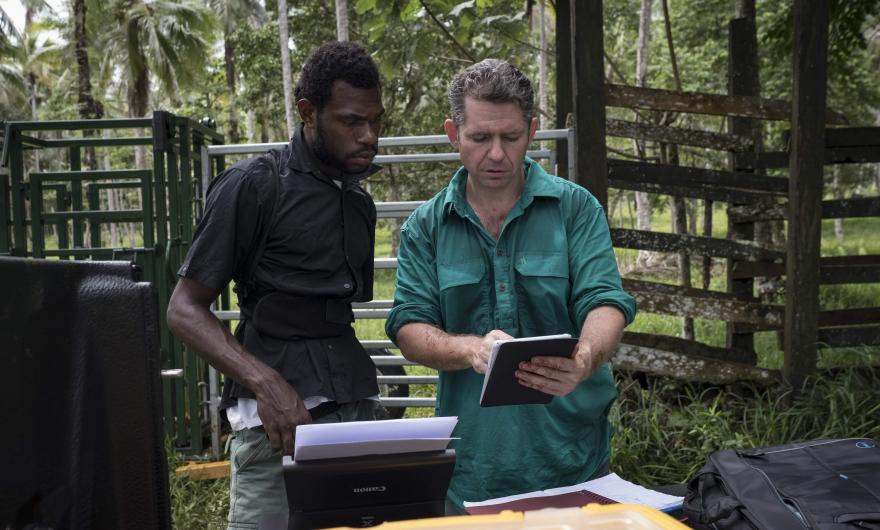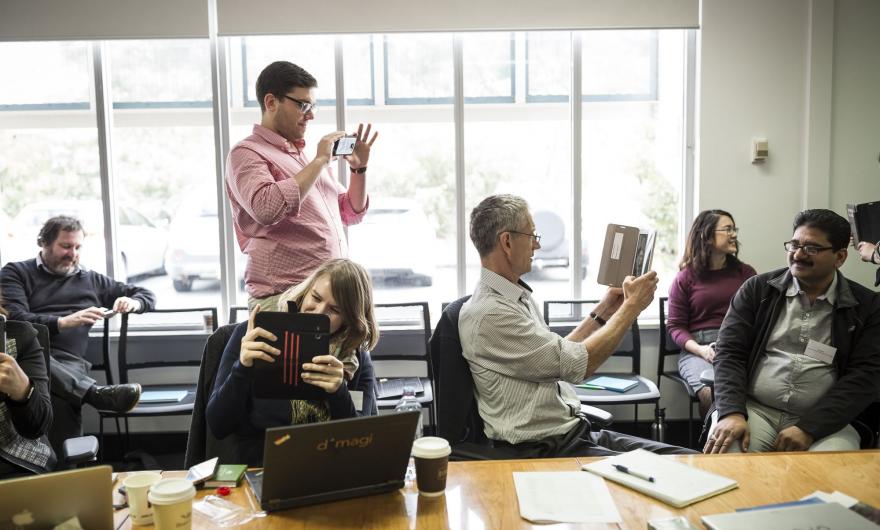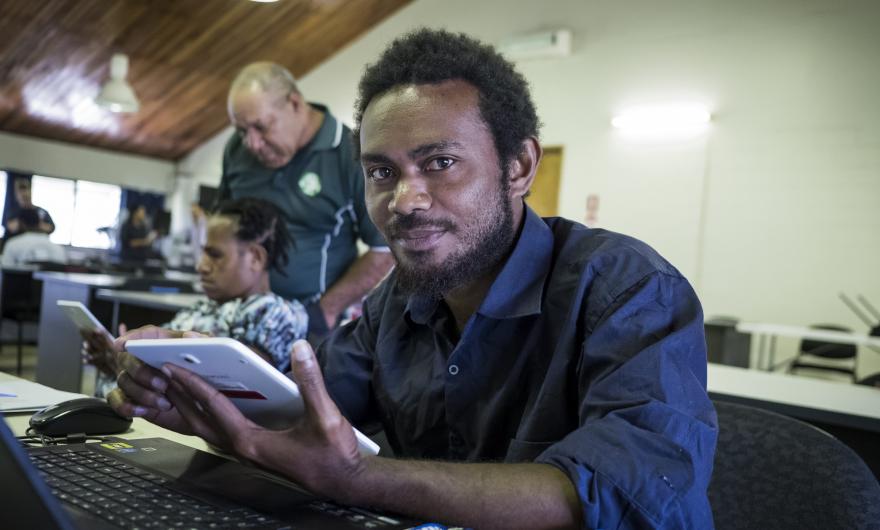MAD technologies can provide feedback to end users (e.g. farmers) allowing better relationships with communities and greater research impact.
Digitisation of paper-based surveys provides an opportunity to renew discussions on research design.

The Research Series
Access to digital information is becoming increasingly vital to unlock the potential of smallholder agriculture. This not only applies to household dynamics, productivity and yield forecasting but also to financing mechanisms and insurance. In recent years, many ACIAR projects have been developing their own bespoke applications for data collection and management. Given the emergence of commercially supported platforms, the Australian Centre for International Agricultural Research (ACIAR) supported a rigorous evaluation over two years of a range of commercially supported applications to discover which, if any, were best suited to the particular circumstances of agricultural research projects, often in remote areas.
The series of studies into the potential benefits of using Mobile Acquired Data (MAD) was conducted by Oikoi Pty Ltd (formerly AgImpact International) and included a collection of activities that:
- Explored and assessed available platforms for digital data collection in remote areas,
- Piloted their use in an international agricultural research project,
- Scaled out their implementation across nine projects in five countries, and
- Explored their costs, benefits and impacts for individuals, institutions and programs.
The evaluation showed clear benefits of “going digital” notwithstanding the initial upfront resources needed to establish a digital platform in any project. At the time of completion, one platform (CommCare) was the best fit for ACIAR agricultural research projects.
This publicly funded research produced a large body of valuable information and resources on using mobile applications for data collection. This website was developed to showcase these resources for international research projects, multinational businesses, global NGO partnerships and the wider community.
If you're not sure where to start we suggest an explainer and overview of the research series in the video below. If you are already on the digital journey but trying to understand the benefits of CommCare and the considerations you may need to make in deploying it within your project, we recommend you start at:
These are useful for understanding the costs and benefits of adopting digital data collection on specific research activities (e.g. large socioeconomic surveys vs small participant interviews). They suggest how timelines should by adjusted, and where mobile apps are most valuable. These sections also provide some country-specific information for adopting mobile acquired data in Pakistan, Vietnam, Vanuatu and Myanmar.
This section covers some of the most common issues faced when adopting mobile acquired data. It discusses working in challenging and remote environments (including working with low or no internet connectivity and mobile device management). Other topics include data management and security between institutions and countries.
This section provides valuable insights into making the conversion from paper to digital. Oikoi's implementation method is provided, along with resources for training enumerators, discussion of institutional-wide training in PNG, and how project staff perceived the technology before and after adoption.
This section of the website is a one-stop shop for all resources generated through the MAD Research Series. It includes:
- Short information flyers,
- Project reports,
- Presentations from the Masterclass and Showcase on key topics
- Short films
- Evaluation data summary






